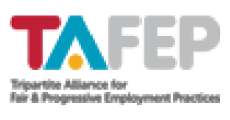The modern business environment is changing considerably as generative artificial intelligence (AI) is used and applied more in the workplace. With many current work skills slated to become obsolete, HR leaders are playing an increasingly important role in manpower planning and hiring for the future.
However, traditional hiring practices often overlook key aspects of an individual’s experience, namely “human” skills such as communication, collaboration, problem-solving, creativity, and resilience. While technical knowledge is essential for success, having a team of employees with strong soft skills can make the difference between achieving organisational goals and falling short.
To keep up with disruptive and emerging technologies, the hiring landscape has shifted considerably. The focus is now on hiring talent armed with these “human” or soft skills, as specialised knowledge may become less important when new technologies appear.
1. Soft skills create a harmonious and productive work environment
With the rise of remote work and global teams, the ability to collaborate has become more important than ever. Business leaders who focus on human skills such as empathy, communication, problem-solving, and teamwork can promote collaboration by encouraging diversity, cross-functional teamwork, active listening, and conflict resolution.
In addition, these skills cannot be easily replaced or replicated by generative AI and are invaluable soft skills that help build business synergy, sense of belonging, and boost talent retention rates.
Technical “hard” skills may be important, but such skills are being replaced quickly due to emerging technologies. The best option for HR leaders is to hire talent that can be versatile, fits in with various departments, and builds rapport quickly to hit the ground running.
2. Leadership skills can steer organisations through unchartered territory
Leadership is a complex and multifaceted skill that involves vision, strategy, communication, decision-making, and people management. While generative AI may be capable of some of these tasks, it cannot replace the human touch of leadership.
This is because leadership requires creativity, which generative AI has, so far, been unable to reproduce. Generative AI may be able to identify patterns and make predictions based on data, but it cannot mimic human creativity.
Effective leadership also requires a human touch to build relationships, inspire employees, and drive innovation and growth. These are qualities that generative AI cannot replicate, making leadership a timeless and essential skill that HR should always focus on.
3. High-touch customer service has become a focus for many businesses
As generative AI automates routine tasks, the most people have come to have high expectations of customer service – especially in terms of promptness of replies. In turn, the value of high-touch service has also grown exponentially.
To keep high-value clients, business leaders must be able to provide high-touch service with dedicated client success managers to manage client relations. This will require hiring talent who are equipped with the necessary soft skills. Examples of such soft skills include the appropriate temperament to work well under pressure and emotional intelligence.
Staying “human” in the age of robots will be important for business and HR leaders
By hiring for human skills over technical skills, leaders can create a team of professionals that collaborates effectively, solves problem creatively, and remains resilient when faced with challenges. Building a more productive and successful workforce can then help organisations move forward and bring the business to the next level.
Yet, hiring for soft skills can be challenging as these are intangible metrics to measure a potential candidate by. An interview alone may not be enough to determine whether a candidate is a good fit or not.
By building a comprehensive portrait of the potential talent through effective screening and background checks, HR leaders can make more informed hiring decisions and give your organisation a better chance of building that elusive dream team. Here’s how our comprehensive background screening services can help you find the right-fit employees for your organisation.







